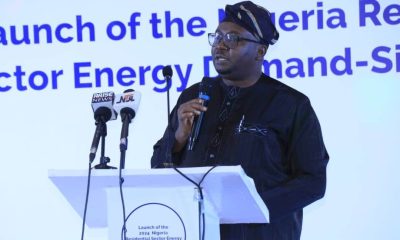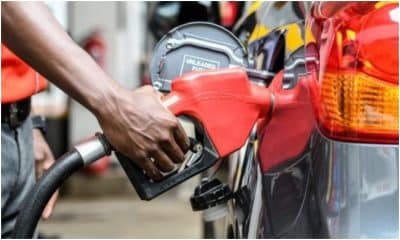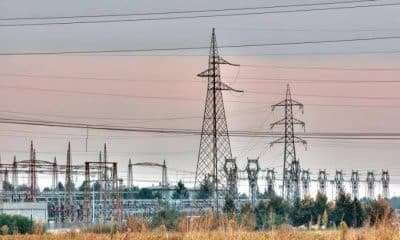Nigeria News
Nigerians Not Making Noise About ₦1k Per Litre Due To Reduced Reliance On Generators – Power minister

The Minister of Power, Adebayo Adelabu, has claimed that many Nigerians have stopped voicing complaints about the high cost of petrol because they are no longer solely dependent on generators for electricity.
Speaking during his keynote address at the ongoing 2024 edition of the Nigeria Energy Exhibition and Conference in Lagos, Adelabu highlighted the theme, “Breaking Barriers in the New Energy Era: Clean, Reliable and Sustainable,” while addressing the current energy landscape in the country.
His comments come in the wake of rising petrol prices, which recently surged to between ₦998 and ₦1,030 per litre following the Nigerian National Petroleum Company Limited’s (NNPCL) announcement of the end of its sole off-taker arrangement with the Dangote Refinery.
This price hike has resulted in significant increases in transportation costs, food prices, and other essential household commodities.
According to ThisDay, the minister also emphasized the federal government’s commitment to enhancing energy access, revealing plans to replace all generators in the country in alignment with the Lagos State policy aimed at replacing 1 million generators within a year.
He said, “People don’t need to buy petrol again as much as they used to do for them to have power. That’s why the noise is even at this level. If they had to be going to the filling stations to buy N1000 per litre of petrol to generate electricity, we would have even had louder noise from the public.
“So, what we intend to do is to make sure that all the generators are replaced in line with Lagos State Policy of Replacement of 1 Million Generators in One Year. I saw that. We must replace all the generators.”
While reflecting on Nigeria’s power generation, the minister lamented the slow growth, saying, “It took us almost 40 years to generate additional 2000MW from the 2000MW milestone we achieved in 1984. Now, we have taken it to an average of 5000MW, with a peak of 5,527MW on the third of September. But we are not deterred. If the last best time was 50 years ago, I believe the next best time is today, and this must wake us up. So, it’s an issue I don’t like to remember.”









